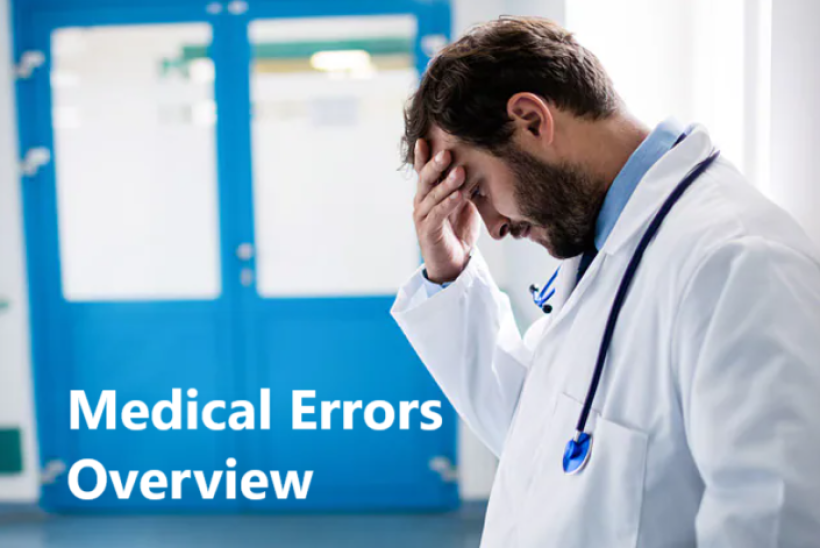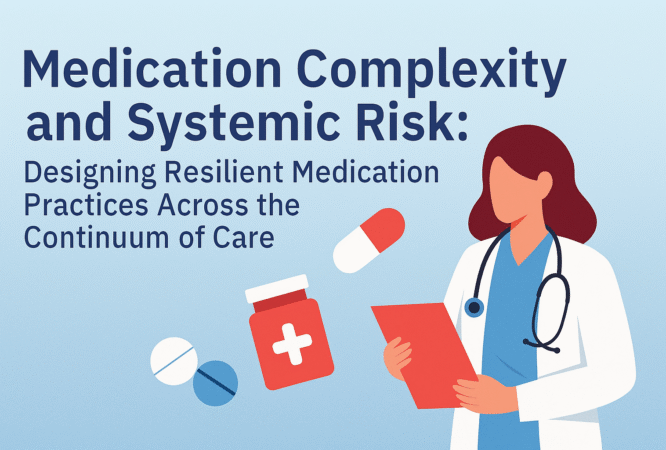Medical errors are a significant challenge in healthcare, impacting patient safety and outcomes. This course provides a comprehensive exploration of medical errors, focusing on their causes, prevention strategies, and the role of effective incident reporting. Participants will learn how to identify common errors, overcome reporting barriers, and analyze incidents to drive systemic improvements. The course also covers just culture principles, technology-driven solutions, and interprofessional collaboration, equipping healthcare professionals with the tools to reduce errors and enhance safety within their organizations. By the end of the course, participants will be empowered to implement proactive measures that minimize risks and improve patient care.
What you'll learn
- Understand the impact and classification of medical errors.
- Analyze causes of prescription errors and prevention strategies.
- Evaluate dispensing errors and their legal and ethical implications.
- Examine near miss events and the role of technology in error prevention.
- Assess surgical errors and interventions for quality improvement.
- Develop strategies for hospital fall prevention.
- Learn from healthcare safety case studies to drive future improvements.
- Enhance patient safety through interprofessional collaboration.
- Navigate the medico-legal aspects of medical errors and disclosure.
- Strengthen teamwork and collaboration to prevent errors.
- Improve incident reporting practices to enhance patient safety.
- Reduce errors in verbal medication orders through standardized communication.
- 12 Sections
- 12 Lessons
- 4 Hours
- Medical Errors Overview.2
- Prescription2
- Dispensing Errors2
- Near Miss Events in Healthcare.2
- Surgical Errors.2
- Evidence-Based Fall Prevention in Hospitals.2
- Healthcare safety in focus.2
- Synergy in Healthcare.2
- Navigating the Medico-Legal Landscape of Medical Errors.2
- Team Dynamics.2
- Effective Incident Reporting in Hospitals.2
- Strategies to Minimize Errors.2
- Comprehensive Overview: Covers medical errors, safety principles, and prevention strategies applicable across healthcare and administrative roles.
- Interdisciplinary Focus: Designed for healthcare professionals, administrators, policy makers, and support staff who impact patient safety
- Evidence-Based Learning: Provides real-world case studies, research insights, and best practices adaptable to various fields
- Legal & Ethical Insights: Helps both medical and non-medical participants understand regulatory, ethical, and organizational aspects of safety.
- Technology & Innovation: Explores how digital solutions improve reporting, communication, and risk management beyond clinical settings.
- Systems Thinking Approach: Emphasizes teamwork, collaboration, and leadership to strengthen healthcare safety culture.
- All Specialties licensed by the Saudi Commission for Health Specialties, including both clinical and non-clinical fields.
- Educational or Professional Background: No strict medical expertise required—open to healthcare professionals, administrators, policymakers, and other safety-focused roles.
- Interest in Patient Safety: Suitable for individuals passionate about reducing errors, improving safety, and understanding healthcare systems.
- Basic Understanding of Healthcare Processes: Familiarity with workflows, communication, and decision-making in healthcare or related industries is beneficial but not mandatory
- Commitment to Learning: Willingness to engage in evidence-based discussions, case studies, and practical applications for improving error prevention strategies.
You might be interested in
-
All levels
-
25 Students
-
11 Lessons
-
All levels
-
25 Students
-
11 Lessons
-
All levels
-
564 Students
-
10 Lessons
-
All levels
-
564 Students
-
10 Lessons
-
All levels
-
753 Students
-
11 Lessons
-
All levels
-
753 Students
-
11 Lessons
-
All levels
-
834 Students
-
10 Lessons
Subscribe to receive our latest courses
Get in touch
Call us directly?
Address




